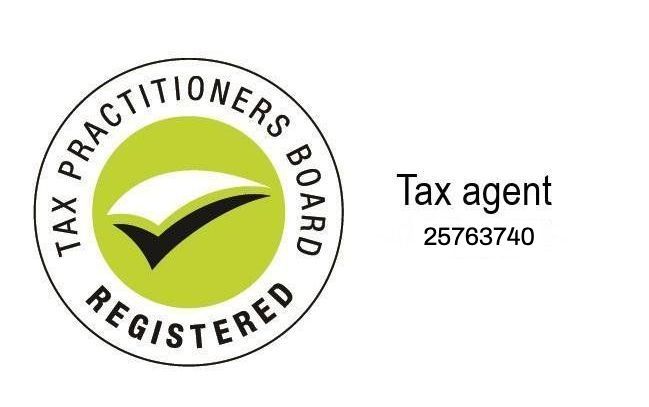What can a bookkeeper do for your business?
Vania Wang • October 8, 2020
What can a bookkeeper do for your business?
Bookkeeping is to a business what an operating system is to a computer. It is the very language of business. And that makes your bookkeeper an important part of your business. From keeping your tax-ready and chasing payments to processing payroll and stocktaking, a bookkeeper can do a lot of things for your business.
In this blog, we take a look at all that your bookkeeper can do for your business.
Manage Daily Accounts
A bookkeeper keeps up with your organisation’s accounts on a daily basis. By recording every purchase and sale as it happens, your bookkeeper helps you keep a keen eye on the cash flow. What’s more, this also saves a lot of time on data entry.
Stay Organised
A bookkeeper can ensure your business records are accurately recorded and up-to-date. Moreover, it will be his job to flag any inaccuracies between the business accounts and the books, ensuring any issues can be resolved quickly.
Be Tax-Ready
Tax deadlines are very strict, and any lapse could result in a hefty penalty. Doing the books is the last thing that comes to mind for small business owners, so deadlines could easily slip your mind. A bookkeeper will ensure your records are accurate and you are ready when it’s time to file your returns, keeping the taxman happy and preventing any penalty.
Adhere to the Law
Tax is a sensitive area. One small error could result in a letter from the HRMC. That’s where a seasoned bookkeeper can help; he can ensure your business complies with the relevant laws.
Process Payroll
A bookkeeper can even help with payroll processing for your small business. This could include processing paychecks and tax payments to your employees.
Manage Accounts Receivable
Your bookkeeper will be responsible for preparing invoices and sending them out to your customers so the payments are received on time. He will also manage the accounts receivable ledger while also tracking late payments to ensure your records are up to date and accurate at all times.
Manage Accounts Payable
A bookkeeper is the one who makes payments on the behalf of your business. This includes payment of petty cash, supplier invoices and any expenses.
Track Cash Flow
This is one of the most important tasks performed by bookkeepers, ensuring your business does not run out of cash for daily operations. Your bookkeeper does this by tracking your revenue vis a vis your expenses whilst also offering advice when your business needs more cash.
Stocktaking
Bookkeepers often generate inventory reports for small businesses by counting the stock items. They will report any discrepancies to you to ensure you can resolve the issue immediately.
Stocktaking is often carried out at the end of the financial year with the figures reported in statements like Profit and Loss.
Need Help with Bookkeeping?
THN & Samios Partners
has a team of experienced bookkeepers who can help ensure your business operates smoothly.
Contact us today

By Vania Wang
•
January 27, 2025
As a medical professional, your practice isn’t just a business, it’s a platform to provide care, build relationships, and make a difference. Scaling your practice to meet growing demand is exciting, but it also comes with financial challenges. Whether you’re expanding your team, upgrading equipment, or opening a second location, a solid financial strategy is key to sustainable growth.

By Vania Wang
•
January 14, 2025
One of our clients, a cardiologist, came to us feeling frustrated. They were earning a strong income and investing regularly, but their wealth wasn’t growing as fast as they’d hoped. After reviewing their situation, we found several areas for improvement. Their investments were held in their own name, which meant they were paying taxes at the top marginal rate. They were also missing out on key deductions and weren’t using their superannuation accounts to their full potential. We worked together to restructure their finances. By moving their investments into a family trust, they could distribute income to family members on lower tax rates. We also restructured their loans to reduce interest payments, freeing up cash flow for other investments. One of their properties was operating at a loss, but we used negative gearing to offset their taxable income, saving them thousands. Finally, we optimised both their and their spouse’s super accounts, taking advantage of lower tax rates to build long-term wealth. The results were immediate. They now save $10K annually in taxes and have better cash flow, allowing them to invest more effectively. Their assets are also insulated from potential litigation, giving them peace of mind about the future. This is a perfect example of how the right advice can make a world of difference. If you’re feeling stuck or unsure about your financial progress, a specialist accountant can help you unlock new opportunities and achieve your goals faster. You’ve worked hard for your success, it’s time your finances reflected that.

By Vania Wang
•
November 11, 2024
When you’re running a business, having insurance in place often feels like a safety net. You’ve checked the box, paid the premiums, and you can breathe a sigh of relief. But are you truly covered? Many business owners believe they’re protected, only to find gaps in their coverage when it’s too late. It’s not uncommon to assume you’re safeguarded, but the reality is that insurance and asset protection strategies need regular review, especially as your business and personal circumstances change.

By Vania Wang
•
November 1, 2024
You’ve worked hard to build wealth and provide for your family. But when it comes to passing that wealth on, are you aware of the potential tax implications? While Australia doesn’t have a direct inheritance tax, that doesn’t mean your beneficiaries are completely off the hook. There are other taxes that can come into play, especially when it comes to inherited assets or superannuation.

By Vania Wang
•
October 1, 2024
Discover why running a business feels harder than ever and how to regain control of your finances. In this blog, we explore common challenges faced by business owners, from cash flow issues to lost focus, and offer practical solutions to turn things around. Learn how expert financial guidance from THN & Samios Partners can help you overcome obstacles and get back on track.
Contact Info
Address:
Suite 2, Level 29, 259 George St Sydney NSW 2000
Phone:
+61 2 9660 8555
Trading Hours
Monday to Friday 9:30am – 4:00pm
Appointments outside these times are available only by prior
arrangement.
© 2025
THN & Samios Partners Pty Ltd







